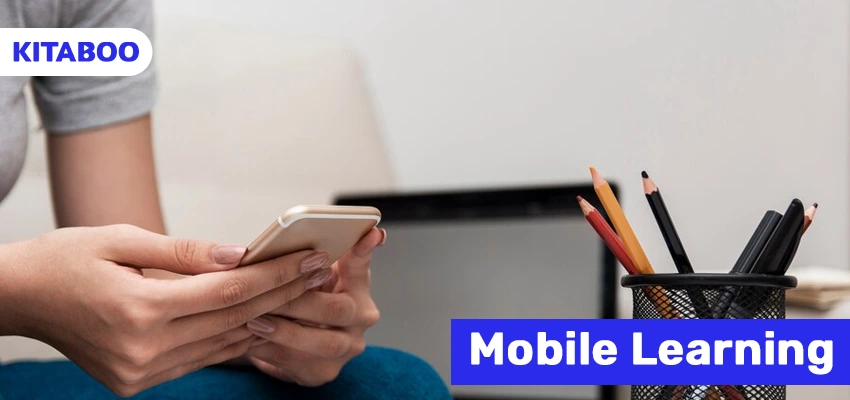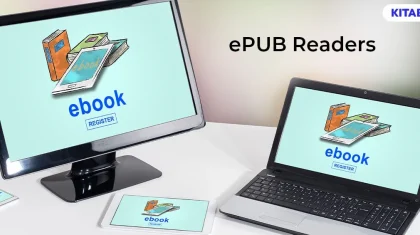
Mobile Learning Revolution: Crafting eBooks for On-the-Go Higher Ed Students
The mobile learning revolution has transformed traditional teaching methodologies and also given rise to innovative approaches to delivering educational content.
The evolution of mobile learning and the advent of eBooks help educators address several key aspects of higher education learning:
- Widening accessibility of educational materials
- Flexibility in content for diverse learning styles
- Personalized teaching approaches and assessments
- Insightful feedback mechanisms
In this article, we will explore the profound impacts of mobile learning on higher education and delve further into the art of crafting eBooks tailored for the on-the-go lifestyle of contemporary higher education students. Read on!
Table of Contents:
I. The Mobile Learning Paradigm
II. Crafting eBooks for On-the-Go Learning
- Interactivity and Multimedia Integration
- Adaptive Learning Paths
- Collaborative Learning Features
- Accessibility and Cross-Platform Compatibility
III. Benefits of Mobile Learning in Higher Education
- Flexibility and Convenience
- Global Resource Access
- Real-Time Content Updates
- Enhanced Engagement and Retention
IV. Challenges and Considerations
V. Conclusion
The Mobile Learning Paradigm
Mobile learning represents a methodical shift in education, providing students with extensive access to learning resources beyond the boundaries of traditional classrooms.
With the widespread presence of smartphones and tablets, educational content is not simply restricted to physical textbooks or lecture halls. This revolutionary mobile learning approach to learning recognizes the dynamic lifestyles of higher education students, allowing them to integrate learning into their daily routines seamlessly.
The mobile learning paradigm is characterized by its flexibility, accessibility, and interactivity. It allows students to engage with course materials at their own pace. Lectures, interactive modules, and assessments can be accessed at any time from anywhere. This way, it empowers students to take control of their learning journey, fostering a self-directed and personalized educational experience.
In this context, digital textbook platforms like KITABOO play a pivotal role in realizing the potential of the mobile learning paradigm. These platforms offer a centralized hub for diverse learning materials, making them easily accessible on various devices.
Crafting eBooks for On-the-Go Learning
At the heart of the mobile learning revolution lies the transformation of traditional textbooks into dynamic and interactive eBooks. Crafting eBooks refined for on-the-go learning involves a blend of technology and user experience design.
In this context, digital textbook platforms like KITABOO offer intuitive interfaces, multimedia integration, and adaptive learning features. These enhancements create an immersive learning experience that resonates with the mobile lifestyles of higher education students.
Let’s explore the key elements that contribute to the effectiveness of these digital learning tools.
1. Interactivity and Multimedia Integration
eBooks designed for mobile learning transcend the limitations of static text. The incorporation of interactive learning experiences such as quizzes and multimedia content enhances engagement and comprehension. This not only captures the attention of students but also caters to diverse learning preferences, ensuring a more inclusive educational environment.
2. Adaptive Learning Paths
Adaptive learning paths within eBooks allow for personalized progression through the course content. This ensures that students can focus on areas where they need additional support while spending less time on mastered concepts.
eBooks can dynamically adjust content based on individual performance, providing customized feedback and recommendations. So, as a student engages with the material, the adaptive learning system tailors the learning path to their strengths and weaknesses. This not only maximizes efficiency in the learning process but also enhances comprehension and retention.
3. Collaborative Learning Features
Features that facilitate interactions, such as discussion forums and collaborative projects within eBooks, promote active engagement and exchange among students.
Insightful interactions among students not only enrich the learning experience but also prepare them for the collaborative nature of the modern workplace.
4. Accessibility and Cross-Platform Compatibility
eBooks should be designed with accessibility in mind, with considerations for diverse learning styles and the inclusion of features such as text-to-speech, adjustable font sizes, and compatibility with screen-reading software.
Platform flexibility allows eBooks to be accessed seamlessly across different devices and operating systems, providing a consistent user experience for all students. This also ensures that students can transition between devices without losing progress, making on-the-go learning truly versatile.
Benefits of Mobile Learning in Higher Education
The adoption of mobile learning in higher education brings forth several benefits that contribute to the holistic development of students and the evolution of teaching approaches.
Here are some of the major advantages of integrating mobile learning in higher education:
1. Flexibility and Convenience
Mobile-based content delivery platforms empower students to adjust their schedules to their individual preferences and commitments. During free moments, students can easily access educational content, maximizing their time and developing an attitude towards continuous learning.
2. Global Resource Access
The ubiquity of mobile devices allows higher education students to access a variety of educational resources from anywhere. This global access broadens their perspectives and also facilitates cross-cultural understanding, preparing them for an interconnected and diverse world.
3. Real-Time Content Updates
The dynamic nature of digital content allows for real-time updates and refinements to course materials. This ensures that students receive the latest information and are aware of evolving trends and innovations.
4. Enhanced Engagement and Retention
The interactive nature of eBooks designed for mobile learning captivates students’ attention, increasing their engagement and information retention. Visual and interactive elements stimulate multiple senses, helping reinforce the learning experience.
Challenges and Considerations
While the mobile learning revolution holds immense promise, it is essential to acknowledge and address the challenges associated with its implementation in higher education.
1. Access to Technology
Limitations in access to technology and high-speed internet can worsen existing inequalities.
Educational institutions should actively work towards bridging this technological divide, ensuring that all students have access to the tools and resources required for mobile learning.
2. Mobile Learning Adaptations
Faculty members and educators should be equipped with the necessary skills needed to design and deliver effective digital content. Pedagogical approaches require appropriate adjustments over time to harness the power of mobile learning fully.
3. Data Security and Privacy
The collection of student data can raise concerns regarding privacy and security. Educational institutions should implement robust data protection measures and ensure compliance with relevant regulations to build trust with students.
Conclusion
Crafting eBooks for on-the-go higher education students requires a delicate balance of the right teaching pedagogy, technology, and user experience design.
By embracing interactivity, adaptability, collaboration, and accessibility, educators can create digital learning tools that resonate with the dynamic lifestyles of contemporary students.
Educators and institutions can make use of cutting-edge digital textbook platforms like KITABOO to publish, distribute, and market their solutions to audiences worldwide. This platform helps bridge the gap between traditional education and the modern digital landscape and offers a plethora of features designed to enhance the learning experience.
Write to us at contact@kitaboo.com to know more!
Discover how a mobile-first training platform can help your organization.
KITABOO is a cloud-based platform to create, deliver & track mobile-first interactive training content.



